Entertainment can be both an escape from the problems of the real world, and a captivating reflection of how such problems exist in today’s society through expert storytelling and the unforgettable characters who endeavor to find solutions to life’s challenges.
One outstanding example of the latter is the acclaimed comedy/satire web series Dark Justice, created by Mike Gerbino and co-starring Che Holloway as an overwhelmed Black cop (Amir Johnson) who, as the only minority policeman in a small community’s local police department, is paired on the beat with a racist White partner (Officer Stanton, played by Tim O’Connor) while working alongside an equally bigoted White officer corps.
Now with 6 more episodes available on Amazon Prime, YouTube, Facebook and the series’ official web site, Dark Justice expands its satirical reach beyond the insidious racial bias of White cops against minority communities while retaining the same genuine comedic style it’s been praised for over its past two seasons.
“Season 3 takes on gun control, workplace sexism and prisons, as well as police training/hiring/procedure,” says Gerbino. “As with every episode of Dark Justice, these episodes handle this highly sensitive subject matter with an absurd and silly attitude, making for a surprisingly light tone.”

L-R: DARK JUSTICE co-stars Tim O’Connor and Che Holloway. Photo courtesy Merrick Goma.
When Dark Justice premiered in 2016, the deaths of Michael Brown, Eric Garner, LaQuan McDonald, Freddie Gray, Alton Sterling and other Black victims of police brutality had already generated massive outrage from citizens of communities big and small.
This led to the creation of Black Lives Matter, a social movement that has united average citizens and world-famous celebrities in the cause of forcing critical changes to law enforcement’s treatment of Blacks and other minorities.
Having weighed his own relationship with his police-employed family and the personal encounters he’s had with law enforcement with his responsibilities as a storyteller attempting to make sense of America’s criminal justice crisis through comedy, Gerbino created Dark Justice in response to the police-perpetrated death of Michael Brown and the ensuing protests that took place in Brown’s hometown of Ferguson, Mo.; protests that forced Gerbino, who is White, and millions of Americans to confront the ongoing crisis of racially biased policing.
“My perspective is unique in that I have a number of cops in my family, and was able to witness the absolutely backward way in which they perceived the protests (against police in Ferguson after the death of Michael Brown in 2014). That heavily influenced the tone of Dark Justice,” recalls Gerbino.
“I wanted to frame these issues in a way that would disarm critics just as much as it would give some needed comedic relief to the people who already agreed with it. A victim of oppression shouldn’t be responsible for reaching out to those who are complicit in their maltreatment, so I’ve felt that trying to disarm and change minds is a responsibility I should take on as a white person making this show.”
Through the polar opposite characters of Amir (Holloway) and Stanton (O’Connor), Dark Justice also examine the discrimination that Black police officers experience while at work and in the community. That part of the series’ storyline, and the characteristics of Dark Justice‘s two conflicted cops, is also based on Gerbino’s first-hand relationships with law enforcement.
 “My personal experiences with cops, both as their family and as a civilian, are threaded into the more subtle personality traits of the characters,” explains Dark Justice’s creator.
“My personal experiences with cops, both as their family and as a civilian, are threaded into the more subtle personality traits of the characters,” explains Dark Justice’s creator.
“Officer Stanton is an obviously heightened version of the racism I’ve heard first-hand from cops, while Amir is a more righteous take on cops I know who view themselves as ‘good’. In the end, of course, Amir always fails to transfer that “good cop” energy into actionable change, much like in real life.”
As Dark Justice‘s third season launches in 2020, the tragic police shootings of unarmed Black Americans like George Floyd, Brianna Taylor, Rayshard Brooks, Ahmaud Arbery and Jacob Blake have increased the urgency of creating inherent social reform in police departments nationwide; reform that includes holding rogue cops to account for violence against unarmed citizens while rebuilding the irreplaceable trust it’s lost from the communities they’ve vowed to protect and serve.
Thus, Dark Justice carries even greater significance as the Black Lives Matter movement remains both a rallying cry for justice and a political lightning rod among partisans on both sides of the aisle.
“I think Dark Justice has been completely re-contextualized in light of the 2020 uprisings. We made the show in a very different climate — one in which the words ‘Black Lives Matter’ were controversial even in liberal circles,” Gerbino notes. “Much of our ire has been aimed at those liberal circles and their trepidation about taking sides against the police. In fact, poking fun at liberals is the most fun we’ve had on the show!”
With long-running sitcoms like Brooklyn Nine-Nine reassessing its overly unrealistic on-screen portrayals of law enforcement, Gerbino aims for Dark Justice to challenge viewers’ traditional perceptions of cops in comedy; perceptions that have led to audiences seeing police officers as seemingly infallible while their real life behavior is anything but.

Che Holloway co-stars in DARK JUSTICE as Officer Amir johnson, the sole Black police officer on an otherwise White – and racist – small town squad.
“I think our entertainment landscape has been so saturated with a sanitized version of police (in comedies especially) that allowing people to laugh at cops within the context of their real-world truth is an important step toward normalizing critique of authority,” says Gerbino.
“For most police/buddy cop comedies, there has always been a segment of the population who have had to compartmentalize their own experience with authority in order to enjoy them.”
As Americans continue to reckon with the dual crises of police violence against Blacks and mass incarceration of Blacks – both devastating consequences of the country’s long-running battle with racism – Gerbino wants Dark Justice to challenge the status quo in law enforcement in an entertaining and thought-provoking fashion.
“I truly believe that taking the ethical and political implications of policing out of a television/movie portrayal of the justice system only works to strengthen the white-washing of those institutions,” Gerbino replies. “I hope some people find our show to be a respite from that burden, and are able to enjoy it without having to section off a part of their conscience.”
The reaction to Dark Justice from audiences has clearly hit home with Gerbino, who praises both the series’ viewers and the brave Americans fighting actively for a more equal society for doing their part to help achieve that “more perfect union” hoped for over 240 years ago by the country’s founders.
“I’m heartened to see things change, and I’d like to think our show is one tiny drop in a larger ocean of work that has been done. Watching the bravery and commitment of these protestors and organizers reminds me that our show is just designed to supplement the fight in a small way. I know for a fact that some people in our screenings, and who have seen the show online, have been challenged by the subject matter — I’m proud of that.”

The DARK JUSTICE team works on a script for an episode of the show’s third season. L-R: series creator/writer/director/co-producer Mike Gerbino, writer/co-producer Travis Cannan, co-star/co-producer Che Holloway and co-star Tim O’Connor and writer/co-producer Elisa Peebles.
That said, the most effective form of comedy can reveal uncomfortable truths about where we stand in society. While writing Dark Justice, Gerbino took care to frame the show’s important social commentary in a funny yet honest way. However, as he explains, presenting Dark Justice as a satirical exploration of a challenging real life problem is an extraordinary balancing act.
“When writing a joke about something serious, we usually ask ourselves three things. Is it funny to us? Will it feel cruel to anyone watching? Can we defend it? That is the formula for this kind of satire, in my mind. We know that some of the jokes hit too close to home for some people, and we respect that. It is a necessary part of comedy, and something that we think a lot about.”
A standout example of Dark Justice‘s unflinching comedy is in the episode “The Stanton Prison Experiment”, filmed in black and white cinematography and presenting Holloway and O’Connor’s cop characters taking part in a 24-hour scenario where, as prisoners, they experience both severe oppression and disproportionate racial treatment by their captors.
“The Stanton Prison Experiment” sheds light on how the criminal justice system continues to work against Black Americans, and the tolerance limits of inmates toward the authority figures who oversee them. While it was conceived well before there was any consideration of a third season of Dark Justice (let alone a second one), the idea for this episode of the series was meticulously planned and perfected on up to its production.
“The premise is based on the famous Stanford Prison Experiment, which ironically revealed much more about what authority does to a person than prison itself. Still, it felt like a good way to get our main characters into a jail cell. That episode was so much fun to make, though it posed a lot of logistical problems — namely that there’s only so many ways you can shoot that tiny room and keep it interesting.”

Tim O’Connor co-stars in DARK JUSTICE as Officer Stanton, the racist partner to Black cop Amir Johnson (Che Holloway).
Viewed by Gerbino as the highlight of Dark Justice‘s third season, the episode also spotlights the individual talents of its cast while reintroducing some old favorites from previous seasons of the series.
“Some of my favorite performances of the series are in that episode, including DJ-alums Mooney Faugh and Jon Cesar, and the hilarious addition of Marisa Caruso as the public defender,” remembers Gerbino.
Yet, to Dark Justice‘s creator, one cast member’s work on “Stanton” stands out among the rest. “I’d argue it is Tim O’Connor (Officer Stanton)’s best performance of the series as well. So much fun. It’s my favorite episode of the season for so many reasons, but there is so much we didn’t get to say there. We could do an entire series about prison, honestly. Maybe we should!”
Along with his cast and crew, Gerbino has gotten his own crash course in the responsibilities of satirical comedy. “I’ve learned a lot about satire — its promises and its limitations. It has been fascinating to see how people react to this kind of show, and I truly value all types of reactions. These are very personal issues to so many people, and we’ve always felt a responsibility to think through our satire so that we could be proud of the outcome. I’ve evolved a lot on the issue of policing as well.”
While some activists have called for the outright de-funding and even dismantling of community police departments, Gerbino believes that the reform-minded approach that others have emphasized has ultimately informed his point of view on how police can better understand and approach the citizens who rely on them.
“The thesis of Dark Justice, to me, is that it takes more than ‘good cops’ to solve these problems. It takes fundamental, structural changes. Even then, I was not someone who believed in the abolition of policing. I just didn’t see how it could work, but thanks to the tireless efforts of many organizers and activists, I see now that my vision of a “solution”, essentially a re-imagining of the role police hold in society, isn’t all that far from what abolition groups have long been calling for.”
Adds Gerbino: “As someone who thinks about these issues quite a bit, I still don’t know if I would’ve come to that conclusion without making this show and hearing people’s honest compliments, critiques and assessments of it. Any time you take on the responsibility of educating people with your work, you must have a willingness to get educated yourself. I’m grateful for the organizers who have stood by the show at various points and helped provide that education.”
 While Gerbino’s consciousness of the hostilities perpetrated against Black Americans by police has provoked emotional reaction and deep reflection on his part, the journey he’s taken with his collaborators during the three seasons that Dark Justice has aired has been as enlightening as it’s been enjoyable.
While Gerbino’s consciousness of the hostilities perpetrated against Black Americans by police has provoked emotional reaction and deep reflection on his part, the journey he’s taken with his collaborators during the three seasons that Dark Justice has aired has been as enlightening as it’s been enjoyable.
That experience has further motivated the show’s cast and crew to use entertainment to reflect not just the world as it is, but what the world could become if citizens devote themselves to improving it.
“Nothing about what happened to George Floyd surprised me, but the seismic shift in our nation’s discourse certainly did,” says Gerbino. “For me, as a white person, I feel now is the time for me to show solidarity, love and support while the voices of others take center stage. Having been able to say my piece on these issues for the last 5 years through Dark Justice has prepared me for that.”
While Dark Justice‘s future depends on the money and resources it can acquire to make further seasons of the show, Gerbino aspires for it to serve as both a superb showcase for the show’s talented ensemble – including Holloway and O’Connor – and as a comedy that goes where traditional police sitcoms fear to tread.
“So many hardworking and talented folks put their sweat, tears and fake blood into making it, and I want the show to be enjoyed and appreciated for what it is. I want people to see the genius and hilarious work of Che Holloway and Tim O’Connor! I hope it makes people think, and I hope it makes them laugh.”
While Gerbino and his team have obviously gotten the professional reward of having a series that has become a much-needed upending of the same old stereotypes seen in “buddy cop” movies and sitcoms, Gerbino believes that the greatest way for Dark Justice to achieve success with audiences lies in its fearless approach to something that transcends entertainment: the urgency of achieving a truly just society for all people.

DARK JUSTICE creator Mike Gerbino.
“I hope people watch Dark Justice and get some relief out of it, but when it comes to the changes that need to be made in this country, nothing can replace holding police accountable every single day, standing up against bigotry and fascism in our government and legislation, and remembering that nothing about this is clean or easy,” notes Gerbino.
As is the case with every social movement, change starts with all of us. In the midst of an already challenging year with the COVID-19 pandemic adding to the uncertainty of life in our world, Gerbino encourages viewers of Dark Justice – and all Americans in general – to speak out and get involved in the battle for a better society.
“It is important to be steadfast in your convictions, now more than ever. Talk about these issues, support the real workers, activists and organizers at the center of this fight. Support them with your words, your money and your actions. Also, film the police at every opportunity,” he says.
Even though socially aware comedies like Dark Justice can only do so much to give viewers something to think about while all the laughter is going on in each episode, Gerbino hopes that those unmoved by the need for change in law enforcement may at least have an honest dialogue with their friends and families about the possibility of such change while watching the series.
“If you have people in your life that are resistant to police reform, BLM (Black Lives Matter) and racial justice, a few episodes of Dark Justice might be a nice way (to get) into that conversation. I don’t expect we’ll change that person’s mind, but getting someone to laugh is a great place to start.”
NOTE: The series is closed-captioned on Amazon Prime, YouTube and Facebook.
Watch all three seasons of Dark Justice on the show’s official web site:
http://www.darkjusticeshow.com/
Catch season 3 of Dark Justice on Amazon Prime:
https://www.amazon.com/Dark-Justice/dp/B0891R62X6
On YouTube: https://www.youtube.com/channel/UCTcQjhpLpxkKFYzJZDXIEuw
FACEBOOK: https://www.facebook.com/DarkJusticeShow/
TWITTER: @DarkJusticeShow
INSTAGRAM: @DarkJusticeShow

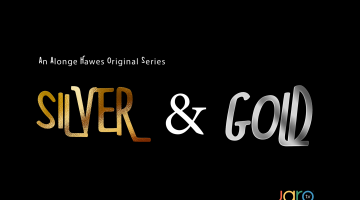



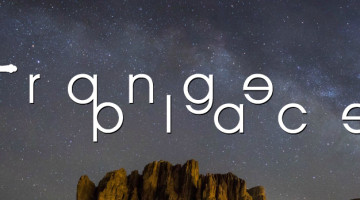
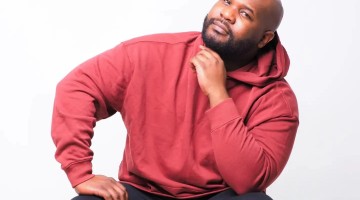
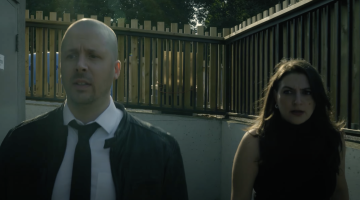
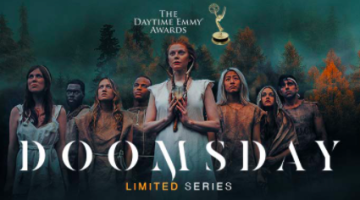

No Comment